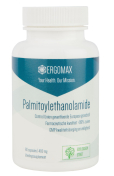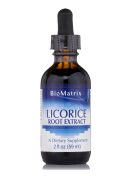Menstrual period
Menstruation, or the menstrual period, is a periodic shedding of the uterine lining that occurs approximately monthly in women of reproductive age. It is a natural phenomenon that is part of the female body; a normal menstrual cycle is a sign of health and fertility. Each cycle, a woman's body prepares for a potential pregnancy by releasing an egg and thickening the uterine lining so that, if fertilized, the egg can implant there. The entire process is coordinated by hormones. Every woman is unique and experiences her menstrual period in her own way. There are many variations in the duration of a cycle and the intensity of bleeding. Some women may experience discomfort, such as headaches, abdominal cramps, or bloating. When women experience severe physical and emotional symptoms that recur every month, the term premenstrual syndrome (PMS) is used. Women can try supplements for menstrual pain if desired to see if it provides relief. Ergomax offers various supplements in its product range that specifically focus on women's health.
How does the menstrual cycle work?
The duration of a natural menstrual cycle typically falls between 25 and 35 days, calculated from the first day of menstruation to one day before your next menstruation. There are four phases to distinguish: egg maturation, ovulation, descent into the uterus, and menstruation. Ovulation lasts for 1 to 2 days and occurs around the 14th day of the cycle. Afterward, the uterine lining begins to thicken in preparation for a possible pregnancy. This phase is also known as the luteal phase, which typically lasts for 12 to 14 days, even in women with shorter or longer cycles. Some women experience premenstrual syndrome (PMS) during this period. If the egg remains unfertilized, the body sheds the extra uterine lining and the unfertilized egg, resulting in menstrual bleeding. A woman is born with approximately two million eggs in her two ovaries. When she reaches puberty, around 400,000 to 500,000 are left. From a woman's first menstrual period during puberty until menopause around age 50, she will menstruate an average of 450 to 500 times.
Getting to Know Your Cycle
It is beneficial for a woman to become familiar with her menstrual cycle. By consciously tracking your natural cycle, you can better understand your own physical and emotional responses, and even plan work and other activities accordingly. Each phase of your cycle corresponds to different hormonal, physical, and emotional responses, and by understanding what happens in your body every month, you can learn to cooperate with your hormones. You can view each phase of your cycle as a season: spring, summer, autumn, and winter. This allows you to adapt your lifestyle to how you feel, leverage your hormones to your advantage, and even experience them as a source of strength.
Supplements for Menstrual Pain
Supplements for PMS or supplements for menstrual pain are used by women to support their bodies during the menstrual phase or the preceding luteal phase. Vitamin B6 and zinc are nutrients that can contribute to the regulation of hormonal activity in the body, with vitamin B6 also aiding in normal psychological function. Women who experience heavy menstrual bleeding may benefit from extra iron to support red blood cell production. Folic acid is important for women trying to conceive and helps reduce stress sensitivity, while magnesium is good for relaxing muscles, which can be helpful for relieving abdominal cramps and breast tenderness. Evening primrose, an herb rich in omega-6 fatty acids and gamma-linolenic acid (GLA), is known to help with discomfort associated with menstruation, such as mood swings, breast tenderness, or cravings. Another herb, chasteberry, helps with physical discomfort during menstruation or menopause. Some of the supplements for menstrual pain or those specifically targeting women's health available from Ergomax include New Chapter's Every Woman™'s One Daily, or MegaFood Women's One Daily Multivitamin for Women.
Living According to Your Cycle
In the past, it was quite normal to live according to your menstrual cycle, but in the modern world where hormonal contraception seems to be the norm, and people work tirelessly without taking enough rest when their bodies need it, this practice has somewhat been lost. However, more and more women are rediscovering the power and positivity of being aware of the different menstrual phases and factoring them into their daily lives. During the menstrual phase, the body often craves rest, while the subsequent follicular phase is associated with increased positive energy and typically the highest libido. In the luteal phase, just before menstruation, hormone levels in the body decrease again, which can lead to increased emotional sensitivity or discomfort. Of course, every woman is unique and experiences her cycle differently. But when you are aware of the hormonal changes your body goes through every month, you can use your menstrual cycle as a unique compass to recognize your emotional and physical reactions and adapt to them in your daily life.
Ancient Stories about Menstruation
As early as 1538 B.C., records in ancient Egyptian history mentioned the tampon. However, it was not primarily used as a menstrual product but as a form of contraception. It consisted of rolled-up linen soaked in resin and was inserted before sexual intercourse. The vagina's response was to produce an excess of lactic acid, which prevented pregnancy. Although it was frequently used as a menstrual aid in subsequent centuries, it was mainly by wealthier women. Other women often allowed their menstrual flow to occur, for instance while working in the fields. During that time, it was considered normal, and underwear was not commonly worn. Only when the influence of the church grew, did taboos surrounding menstruation emerge, deeming it "unclean" and even associating it with witchcraft. The lost knowledge about tampons was revived in the late Middle Ages, thanks to returning crusaders, and during that time, washable menstrual pads, which were a good alternative to the potential adverse effects of inserted materials, also became available. The earliest version of a softcup or menstrual cup, which is currently popular, dates back to the time of the Egyptians.
*Health claims pending European approval.




